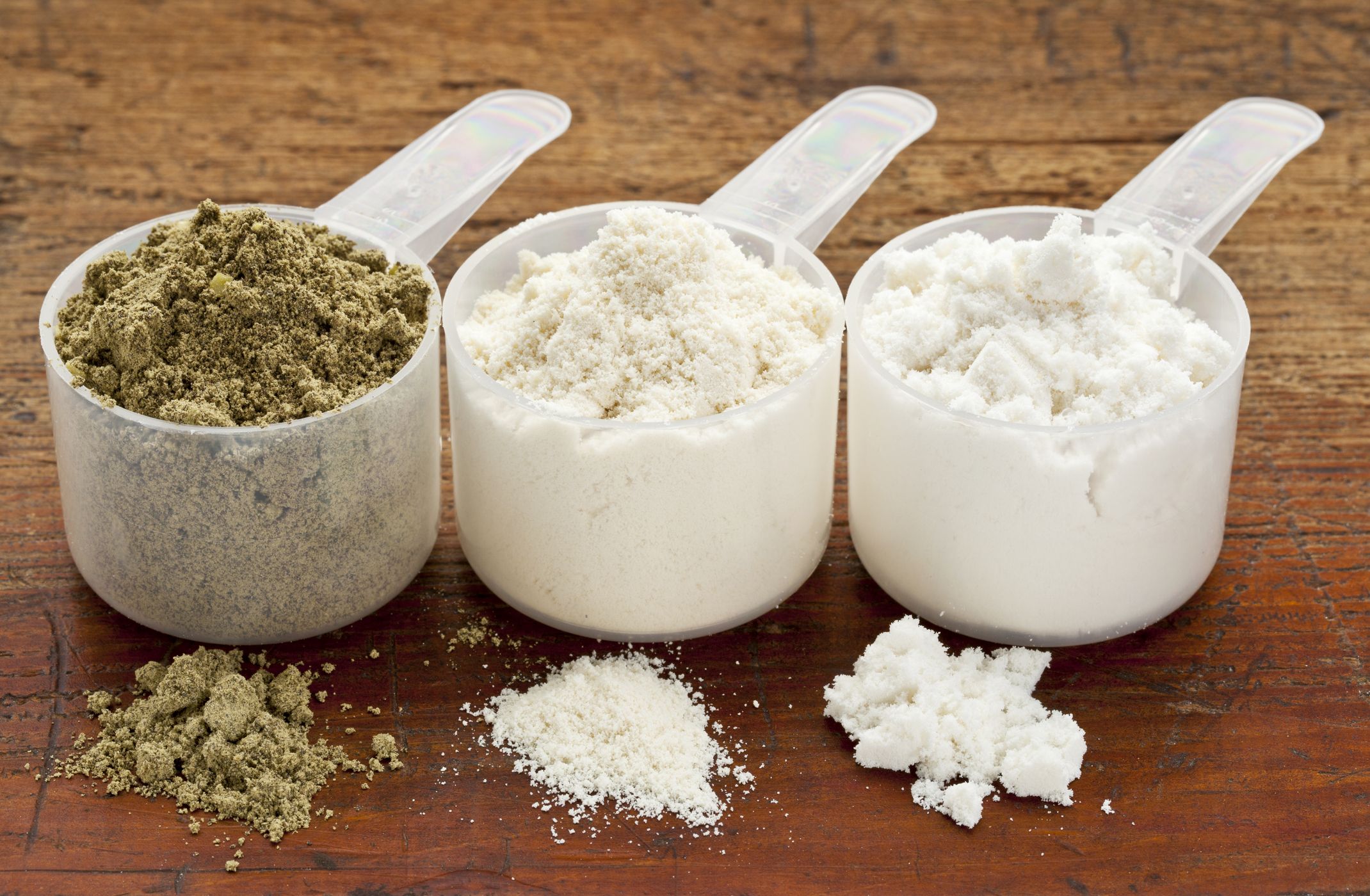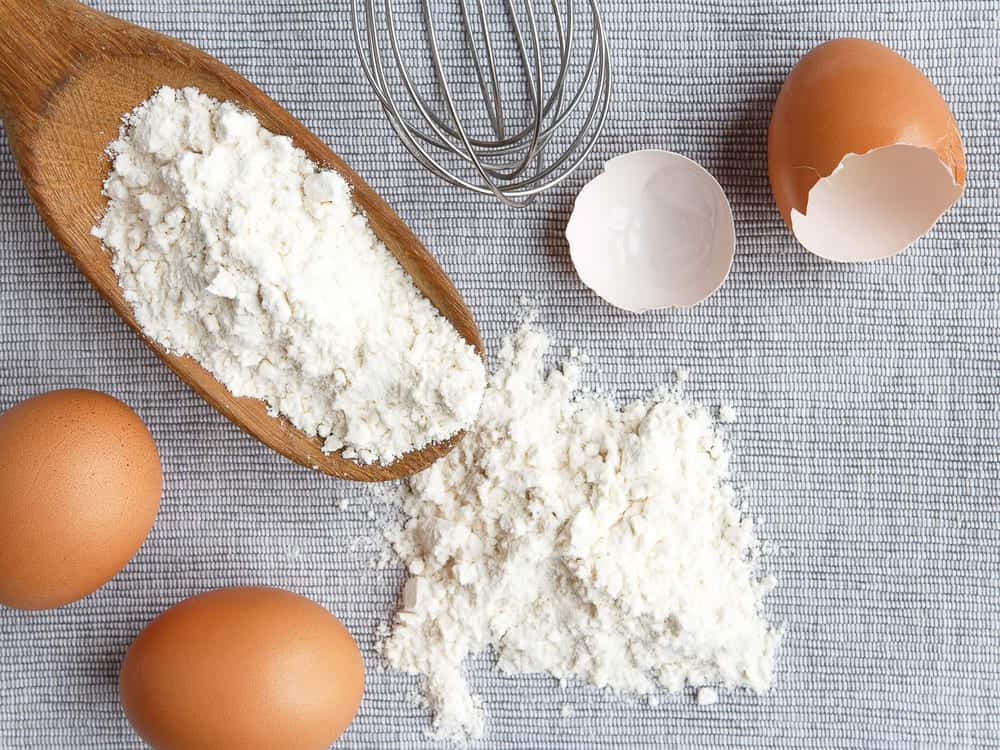4 Best Types Of Protein Powders To Bulk Up On
Numerous types of protein powders and shakes can be found in the market, such as whey, casein, egg white, pea, hemp, and brown rice protein. Each variant differs in its origin, composition of amino acids, and possible advantages. These are health and fitness accessories.
Protein powders and shakes have become all the rage for folks who care about their health and fitness. With so many options out there, it can be a bit overwhelming to figure out which one will give you the best bang for your buck. But fear not, my friend, I’ve got you covered! Let me introduce you to seven of the finest fitness protein powders around for good health.
First up, we have whey protein. It’s made from cow’s milk and is one of the most popular choices out there. It’s known for its quick absorption and high levels of essential amino acids, making it great for muscle recovery and growth.
Next on the list is casein protein, which also comes from milk. Unlike whey, casein is a slow-digesting protein, providing a steady release of amino acids over a longer period. This makes it ideal for those looking for sustained muscle repair, especially during sleep.
If you’re on an egg kick, then egg white protein powder might be just the thing for you. It’s a top-notch option for those with dairy allergies or dietary restrictions. It is packed with essential amino acids and is easily digestible, making it a solid choice for muscle maintenance.
For all the plant-based warriors out there, pea protein powder is a fantastic vegan option. It’s derived from yellow peas and is rich in lysine, an amino acid that’s sometimes lacking in plant-based diets. It is gentle on the stomach and provides a good dose of muscle-building goodness.
Now, let’s talk about hemp protein. No, it won’t get you high, but it will give you a nice dose of omega-3 fatty acids and fiber. Hemp protein is made from hemp seeds and offers a well-rounded nutritional profile, making it a popular choice for those seeking a plant-based protein source.
Last but not least, we have brown rice protein. It’s made from whole-grain brown rice and is another excellent option for vegans or those with food sensitivities. It is easily digestible and provides a decent amount of amino acids, helping you stay strong and fit.

So there you have it, my friend. These powders are the cream of the crop, each with its own unique benefits. Whether you’re a milk lover, an egg enthusiast, or a plant-powered champion, there’s a protein powder out there that’ll suit your needs and help you reach your health and fitness goals. Cheers to a strong and nourished you!
Protein powders are highly concentrated sources of protein derived from various animal or plant sources like dairy, eggs, rice, or peas. They come in three common forms: protein concentrates, protein isolates, and protein hydrolysates.
Protein concentrates are created by extracting protein from whole foods using heat, acid, or enzymes. These concentrates usually contain around 60% to 80% protein, with the remaining portion composed of fats and carbohydrates.
Protein isolates undergo an additional filtration process to remove more fat and carbs, resulting in a higher concentration of the stuff. Protein isolate powders typically contain about 90% to 95% protein.
Protein hydrolysates are produced by subjecting P to further heating with acid or enzymes, which breaks down the bonds between amino acids. This process allows for quicker absorption of the P by your body and muscles.
These protein powders are commonly used by individuals looking to increase their protein intake, such as athletes, bodybuilders, or those who follow specific dietary regimens. They can be mixed with liquids like water or milk, added to smoothies or recipes, and consumed as a convenient way to supplement protein intake.
It’s important to note that these should not replace whole food sources of protein in your diet but can be a useful addition to support your needs, especially in situations where obtaining adequate protein through regular meals may be challenging. Additionally, it’s recommended to consult with a healthcare professional or registered dietitian before incorporating these into your routine to ensure they align with your individual health goals and dietary needs.

Hydrolysates, particularly in the case of whey protein, have been observed to increase insulin levels more compared to other forms of protein powders. This can potentially enhance muscle growth after exercise.
Certain powders are fortified with additional vitamins and minerals, particularly calcium, providing extra nutritional benefits.
However, they may not be necessary for everyone. If your diet already includes an ample amount of high-quality protein, incorporating the P powder may not significantly impact your overall quality of life.
On the other hand, athletes and individuals who regularly engage in weightlifting exercises may find that taking supplements can maximize muscle gain and promote fat loss.
Moreover, these can be beneficial for individuals who struggle to meet their protein requirements solely through food, including those who are ill, older adults, and certain vegetarians or vegans who may have dietary limitations. In such cases, these supplements can help bridge the gap and ensure adequate protein intake.
It’s important to remember that individual needs and goals can vary, and consulting with a healthcare professional or registered dietitian is always recommended to determine if protein powder supplementation is suitable for your specific circumstances. They can provide personalized guidance based on your unique dietary needs and health considerations.

- Whey Protein
Whey protein, derived from milk, is a popular type of protein powder. It is obtained as the liquid part of milk that separates during the cheesemaking process. While whey protein concentrate contains some lactose, the isolate version has very little, as most of the milk sugar is lost during processing.Whey is known for its high protein content and quick digestion. It is rich in branched-chain amino acids (BCAAs), with leucine being particularly important for promoting recovery after both resistance and endurance exercise. When amino acids are digested and absorbed into the bloodstream, they become available for muscle protein synthesis (MPS) and contribute to the creation of new muscle.Research indicates that whey can be beneficial for building and maintaining muscle mass, aiding in recovery for athletes after intense exercise, and increasing muscle strength in response to strength training. For instance, a study in young males demonstrated that whey increased MPS significantly more than soy and casein after resistance exercise. Another recent study on rats found that dairy like milk, whey, and casein had a greater impact on MPS following exercise compared to soy.
Whey protein may also have positive effects on body composition, such as reducing fat mass and increasing lean mass, particularly when combined with resistance training and reduced calorie intake. Additionally, it has been suggested that whey protein can help reduce appetite and enhance feelings of fullness.
Furthermore, some studies suggest that whey protein may have anti-inflammatory properties and could contribute to improved heart health.
However, it is important to note that individual responses to whey protein can vary. While research generally supports its benefits, some studies have shown mixed results, indicating that factors like age and gender may influence the outcomes. It is always recommended to consult with a healthcare professional or registered dietitian for personalized advice on incorporating whey protein or any other supplements into your diet.

- Casein Protein
Casein protein, similar to whey protein, is derived from milk. However, casein is digested and absorbed at a much slower rate than whey protein.When consumed, casein interacts with stomach acid to form a gel-like substance. This slows down the emptying of the stomach and delays the absorption of amino acids into the bloodstream. As a result, casein provides a gradual and sustained release of amino acids to the muscles, reducing the rate of muscle protein breakdown.Research suggests that casein protein may be slightly more effective than soy and wheat protein in terms of increasing muscle protein synthesis (MPS) and strength. However, it is generally considered less potent in these aspects compared to whey. Casein may be particularly beneficial when taken before bed, as its slow digestion can provide a steady supply of amino acids to support muscle recovery during sleep.
Furthermore, an older study conducted on overweight males indicated that when calorie intake is restricted, casein protein may have an advantage over whey protein in improving body composition during resistance training.
It’s important to note that individual responses to casein protein can vary, and more research is needed to fully understand its effects. As with any dietary supplement, consulting with a healthcare professional or registered dietitian is recommended to determine the most suitable protein supplement and its optimal timing for your specific needs and goals.

- Egg Protein
Eggs are considered a top-notch source of high-quality protein. They have the highest protein digestibility-corrected amino acid score (PDCAAS) among all whole foods, indicating their exceptional protein quality and digestibility.Eggs have the added benefit of reducing appetite and promoting satiety, especially when combined with fiber-rich foods. They are known to be one of the best options for helping you stay full for longer periods.When it comes to egg protein powders, they are typically made from egg whites rather than whole eggs. While the protein quality remains excellent, you may experience less satiety because the high-fat yolks have been removed.
Egg protein is a complete protein source, meaning it provides all nine essential amino acids that your body cannot produce on its own. Additionally, egg protein is the second-highest source of leucine, which is a crucial branched-chain amino acid (BCAA) that plays a significant role in muscle health.
However, it’s important to note that egg white protein has not been studied as extensively as whey or casein proteins. One older study found that consuming egg white protein before a meal had less potential to reduce appetite compared to casein or pea protein. Another study conducted on female athletes in 2012 showed that supplementing with egg white protein led to similar gains in lean mass and muscle strength as carbohydrate supplementation.
For individuals with dairy allergies who prefer a supplement derived from animal sources, egg white protein can be a suitable choice.
It’s worth mentioning that individual responses to it may vary, and more research is needed to fully understand its effects and potential benefits. Consulting with a healthcare professional or registered dietitian can provide personalized advice and guidance on incorporating egg white protein or any other supplement into your diet, especially if you have specific dietary restrictions or allergies.

- Pea Protein
Pea protein powder has gained significant popularity, particularly among vegetarians, vegans, and individuals with dairy or egg allergies or sensitivities.This type is derived from yellow split peas, which are legumes known for their high fiber content. It contains all nine essential amino acids, although it is relatively low in methionine.It is also abundant in branched-chain amino acids (BCAAs), which play a crucial role in muscle health and recovery.
According to an animal study conducted in 2015, pea protein is absorbed more slowly than whey protein but faster than casein. It was found to trigger the release of several hormones associated with satiety, suggesting its potential for promoting feelings of fullness comparable to dairy protein.
Furthermore, a small study demonstrated that whey protein and pea protein were similarly effective in improving body composition, muscle thickness, workout performance, and strength when combined with high-intensity functional training over an 8-week period.
Moreover, a study conducted in 2011 indicated that both humans and rats with high blood pressure experienced a decrease in their elevated blood pressure levels after taking pea protein supplements.
While these findings are promising, it is important to note that more high-quality research is necessary to confirm and further explore these results. As with any supplement, it is recommended to consult with a healthcare professional or registered dietitian to determine the most appropriate protein powder for your specific dietary needs and goals.

